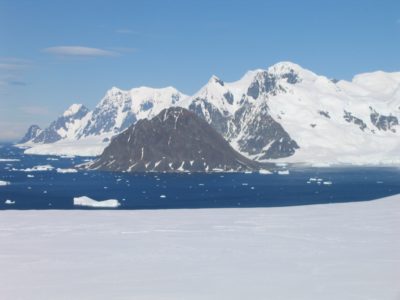Dr Dani Jones is an Oceanographer at the British Antarctic Survey and a Senior Member at Darwin College, University of Cambridge. They have over 15 years of experience in the physical sciences, and as an environmental data scientist and educator, they plan to cultivate a deeper understanding of the climate crisis through research, organisational efforts, and outreach. Dani writes for us here on the importance of trans and gender diverse people being seen and listened to and how we can support our colleagues in the workplace.
International Transgender Day of Visibility, celebrated on March 31 every year, is a day dedicated to highlighting the presence of transgender people in every walk of life, as well as raising awareness about the discrimination and marginalisation they still face. Started in 2009, the day encourages people to recognise transgender individuals and advocate for their rights. Trans Day of Visibility is important because it provides an opportunity for trans and gender diverse (TGD) people to be seen, heard, and valued, and to combat the harmful stereotypes and misconceptions that often surround trans identities. By celebrating Trans Day of Visibility, we can support our friends and colleagues and affirm their right to live as their authentic selves, free from discrimination and prejudice.
Trans and gender diverse people in the Earth System Sciences
Trans and gender diverse individuals have been making significant contributions to the Earth system sciences for decades.
The late Dr Penny Whetton, for instance, was a respected Honorary Research Fellow at the University of Melbourne’s School of Earth Sciences and a lead author for several chapters of the IPCC’s Assessment Reports.
More recently, Dr Mika Tosca, a climate scientist and faculty member at the School of the Art Institute of Chicago, has been exploring innovative ways to use art and design to communicate climate science and inspire action.
Prof. Jonathan Gilligan has been working at the intersection of natural science, social science, and public policy for many years.
Meanwhile, oceanographer and geophysicist Prof. Jaia Syvitski has held various leadership positions during her career, including serving as the director of the Institute of Arctic and Alpine Research at the University of Colorado.
It is evident that trans and gender diverse individuals have been and will continue to be a visible and valuable presence in the Earth system sciences, driving important research and contributing to global efforts to address climate change.
Being an ally to trans and gender diverse people
Colleagues play a crucial role in supporting and advocating for trans and gender diverse individuals in the workplace. By learning about gender identity, gender expression, and inclusive language, colleagues can help TGD individuals feel welcome, safe, and able to contribute.
Refer to everyone the way they ask you to: use the correct pronouns and gendered language. If there is a misgendering incident, handle it briefly, directly, and on your own – do not expect the misgendered individual to handle it later.
More generally, work to create a culture of respect and acceptance and ensure that workplace policies and practices are inclusive of TGD folks. Organisations can help by providing anonymous methods of feedback for cases of harassment and misconduct.
It is worth noting that a culture of respect and acceptance, and policies and procedures that safeguard that culture, not only benefits trans and gender diverse individuals, but also contributes to a more positive professional environment for everyone.
Here are some ways that you can show your support for the trans community at work (borrowed from our colleagues in the UKRI Pride Staff Network):



Comments are closed, but trackbacks and pingbacks are open.